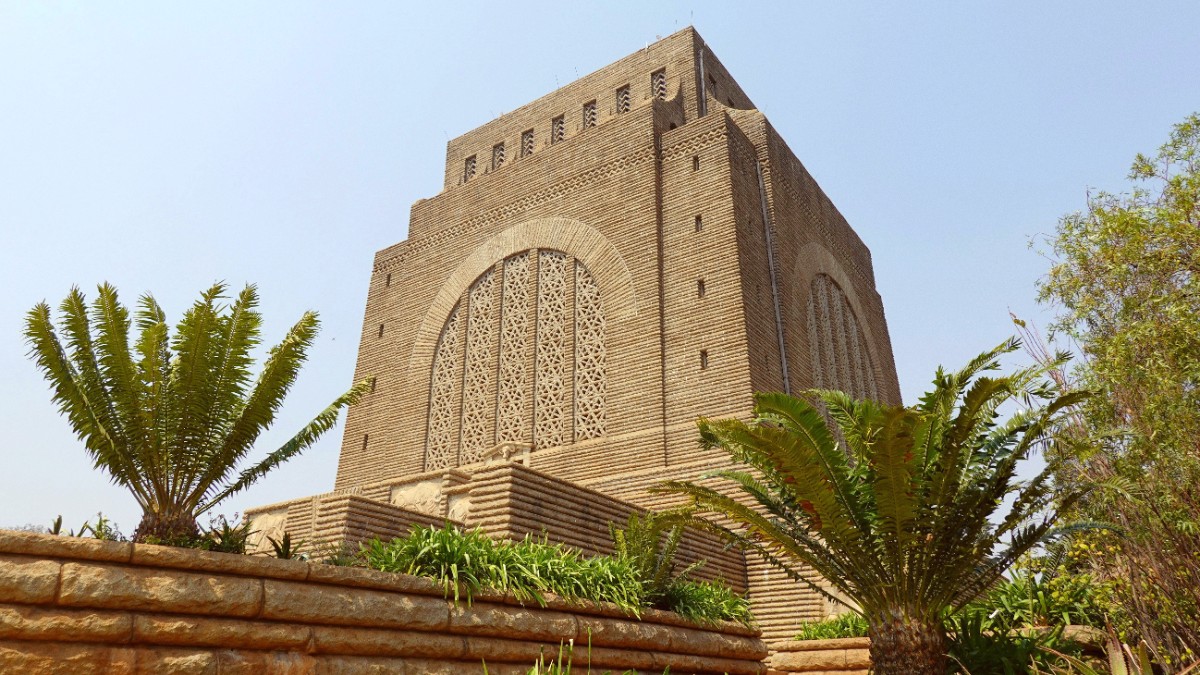
Gauteng, South Africa
Pretoria experiences distinct seasons, each holding an unique appeal for visitors. Select your travel dates based on the weather you prefer and the activities you plan.
Summer (October - March): Hot and wet conditions. Daytime temperatures typically average 25°C to 30°C (77°F to 86°F), occasionally rising above 35°C (95°F). Rainfall occurs as afternoon thunderstorms, often brief but intense. Humidity levels range from moderate to high.
Autumn (April - May): Mild and pleasant weather. Daytime temperatures settle between 20°C to 25°C (68°F to 77°F). Rainfall significantly decreases, and humidity drops, making for comfortable conditions.
Winter (June - August): Dry months bring mild to cool temperatures. Daytime averages range from 15°C to 20°C (59°F to 68°F) under clear skies. Nights turn cold, sometimes nearing 0°C (32°F). Frost can occur.
Spring (September - October): Warm and dry weather, with rising temperatures. Daytime readings typically fall between 20°C to 28°C (68°F to 82°F). This period marks the "Jacaranda Season," when the city's trees burst into purple bloom.
Jacaranda Viewing: Plan your visit between mid-October and mid-November to see the city covered in purple.
Outdoor Activities (hiking, nature reserves): Autumn (April-May) or Spring (September-October) provide mild temperatures. Winter also offers clear skies, but pack warm layers for early mornings.
City Sightseeing: You enjoy city sightseeing at any time. However, summer thunderstorms can limit afternoon outdoor plans, so consider indoor alternatives.
October - March
Lush landscapes, flora.
Hot, humid, afternoon thunderstorms. Higher chance of temporary disruptions.
April - May, September - October
Mild, pleasant temperatures. Fewer crowds (shoulder season).
Jacaranda season means higher demand; booking ahead.
June - August
Lower prices, fewer tourists. Clear skies for wildlife viewing.
Cold mornings and evenings. Some activities might operate on reduced hours.
Many nationalities, including citizens of the USA, UK, most EU countries, Australia, New Zealand, Canada, and Brazil, do not require a visa for tourism stays up to 90 days. A full list of visa-exempt countries is available on the South African Department of Home Affairs website. For nationalities that require a visa, submit applications in advance to a South African embassy or consulate in your country of residence.
Passport: Your passport must hold validity for at least 30 days beyond your intended departure date from South Africa. It needs at least two blank pages for entry and exit stamps.
Return or Onward Ticket: Proof of your travel out of South Africa, such as a flight or bus ticket to your next destination.
Proof of Accommodation: Confirmation of your hotel bookings or an invitation letter from a host in South Africa.
Sufficient Funds: Evidence of financial means to cover your living expenses throughout your stay, like bank statements.
Requirements vary; typically include form, valid passport, photos, funds proof, itinerary. Begin early for processing time variations.
South Africa imposes no general entry fees for tourists at the border.
Upon arrival, proceed through immigration with passport and documents. Officers may inquire about visit purpose and duration.
General tourism does not need specific permits. Research or extended stays in parks might. IVisa or VisaHQ can assist with visa applications.
Yellow fever vaccination certificate if arriving from a high-risk country. Consult WHO list.
Plan your Pretoria budget carefully. South Africa holds options for various travel styles, from budget-friendly adventures to luxury experiences.
The local currency is the South African Rand (ZAR), symbolized as R. One Rand divides into 100 Cents. Major credit cards, including Visa and Mastercard, receive wide acceptance at hotels, restaurants, and shops. ATMs are common and generally safe to use during daylight hours in secure locations like shopping malls or inside banks.
Tipping is customary and expected for good service in South Africa.
Accommodation (per night): Hostel dorm: R200-R400; Guesthouse/B&B: R500-R1500; Mid-range hotel: R800-R2000; Luxury hotel: R2000+.
Meals: Street food/fast food: R50-R100; Casual restaurant meal: R150-R300; Mid-range restaurant (two courses): R300-R500; Fine dining (per person, without drinks): R500-R1000+.
Your well-being holds significance. Take steps to protect your health and stay safe during your time in Pretoria.
Yellow fever vaccination certificate if arriving from or transiting through a high-risk country. Consult WHO list.
Consult a travel doctor 4-6 weeks before departure for routine vaccinations (measles, mumps, rubella, diphtheria, tetanus, pertussis), Hepatitis A, Hepatitis B, Typhoid, and Rabies (if animal contact).
Pretoria is NOT a malaria-risk area. Malaria occurs in specific low-lying areas, mainly parts of Limpopo, Mpumalanga, and KwaZulu-Natal provinces.
Protect yourself against common travel ailments.
Traveler's Diarrhea: Practice good food hygiene. Eat at reputable establishments. Wash your hands frequently with soap and water or use an Alcohol-based hand sanitizer.
Sunburn/Heatstroke: Pretoria experiences strong sun exposure. Use High-SPF sunscreen, wear hats and sunglasses, and stay hydrated, especially during summer.
Dehydration: Drink plenty of water throughout the day, specifically during warmer months, to prevent dehydration.
Drinking Water: Tap water in Pretoria is generally considered safe to drink. Some travelers, specifically those with sensitive stomachs, opt for Bottled water.
South Africa operates a dual healthcare system: public and private. Private hospitals and clinics in Pretoria hold high-quality care, comparable to Western standards, but are expensive. Travel insurance becomes a requirement for medical coverage.
Pharmacies are widely available throughout the city for over-the-counter and prescription medications.
Ambulance: 10177, Police: 10111, All Emergencies (from mobile phone): 112.
South Africa is a high crime rate. While Pretoria is generally safer than Johannesburg, maintain vigilance.
Thunderstorms: During summer, severe thunderstorms with lightning and heavy rain are common. Flash floods can occur in low-lying areas, temporarily disrupting travel.
Bushfires: In dry winter months, veld (grassland) fires can occur, notably in rural or peri-urban areas. Exercise caution if you see smoke.
Highly recommended. It covers medical emergencies, emergency evacuation, trip cancellation or interruption, and theft or loss of belongings. World Nomads, SafetyWing, and Insubuy are options.
Services like AirHelp passengers receive up to €600 in compensation for delayed or canceled flights.
Police: 10111, Ambulance: 10177, Fire: 10177. All Emergencies (from mobile): 112. National Tourist Safety & Support: 083 123 2345.